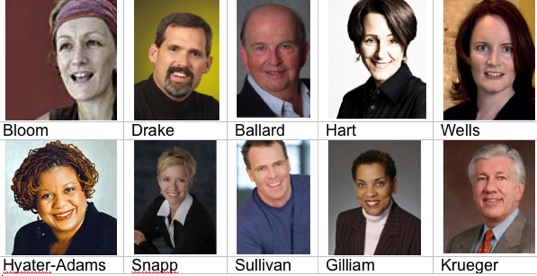You can tell that a particular way of doing things is catching on when a practitioner carves a niche out of teaching others how to do it.
Lisa Bloom has recently begun to teach coaches how to use storytelling in coaching. In her newsletter, Kachanga, in an article that also ran in International Association of Coaching’s IAC Voice, Lisa explains why storytelling is a natural fit with coaching:
Storytelling is the perfect complement to the coaching process, helping us answer the questions we bring into coaching. On one level, storytelling gives the coach an additional tool to get to a level of understanding or awareness which may be inaccessible to the client. This level may be blocked for many reasons; through listening to a story, the client can hear and s ubsequently deal with more difficult issues.
On another level, we are all storytellers and our narrative is the story of how we talk of our lives. As we experience life, we “tell” it. We pass along almost every event that happens to us-as an anecdote, complaint or amusing tableside story-sometimes lightly and sometimes purposefully and with interpretation. And in the “telling,” in the narrative we choose, we define the experience. When we look closely at the narrative and examine the stories we choose to tell, we begin to understand how committed we can become to these stories. We also understand the fascinating potential to create new and better stories-stories that empower us and allow us create a more fulfilling reality.
Of course, Lisa is not the first coach to teach storytelling in coaching. That distinction may belong to David Drake, PhD, who not only teaches storytelling methodology in coaching but also operates the Center for Narrative Coaching. Or perhaps Dr. David Krueger at Mentorpath was the first. His program is Live a New Life Story, in which he offers a coaching certification.

Others use storytelling in coaching, too, including several folks who’ve been part of my Q&A series:
- Jim Ballard of LifeCrafters “uses the myth of the Hero’s Journey to teach groups and individuals how to develop their intuitive connection with their souls; to use not just the intellect but all of themselves in bringing meaning and passion to their experience.”
- Annie Hart has developed several bodies of original work including a Heart-Centered Communication model, DreamBuilders a group coaching model, Stories From the Heart of the Cosmos, a story performance workshop and her current work Skills of Excellence, a compilation of skills of the masters.
- Melissa Wells Q&A “explores remote areas to find unexpected stories about cool creatures” to “help individuals determine what they want out of their career and how to get it.
- Katie Snapp‘s focus is leadership training, and she asks leaders what their leadership story is.
- After Rob Sullivan spent “countless hours helping job hunters from a variety of industries,” he “realized that the inability to share our stories is widespread — mostly because our society isn’t clear on the distinction between bragging and factual self-promotion.” Thus he coaches job-seekers to tell their stories effectively in the job search.
- Karen Gilliam explains here why she uses story-based techniques in coaching.
And finally, someone with whom I have not yet done a Q&A (but would love to) is Yvette Hyater-Adams, who has an assessment instrument, Transformative Narrative Portrait, which Yvette says “takes a collection of stories along a lifeline to look at the pattern of experience and make decisions on ways to ‘re-story’ unhelpful habits into new and thriving stories that move toward a desired vision.” Yvette calls the Transformative Narrative Portrait “a collection of past, present, and future stories along with action stories that help facilitate personal change.” She plans to offer a certification for people who want to use this method for coaching.
